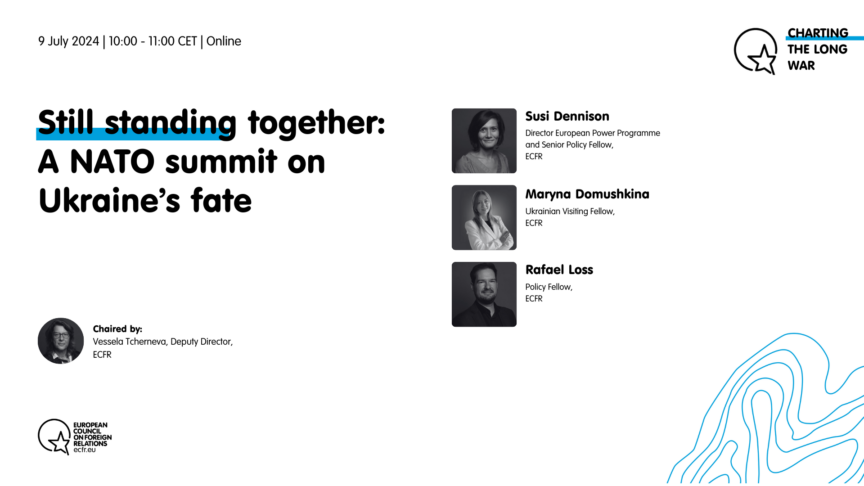
Still standing together: A NATO summit on Ukraine’s fate
As leaders are about to take pivotal decisions for Ukraine’s fate at the NATO summit, join us for a discussion about pathways and policy options for…

As leaders are about to take pivotal decisions for Ukraine’s fate at the NATO summit, join us for a discussion about pathways and policy options for…
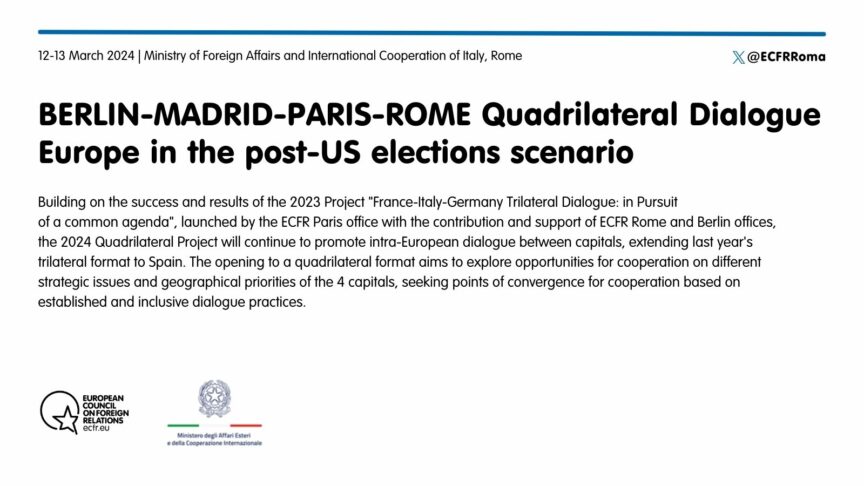
Building on the success and results of the 2023 Project “France-Italy-Germany Trilateral Dialogue: in Pursuit of a common agenda”, the 2024 Quadrilateral Project will continue to promote intra-European dialogue between capitals, extending last year’s trilateral format to Spain
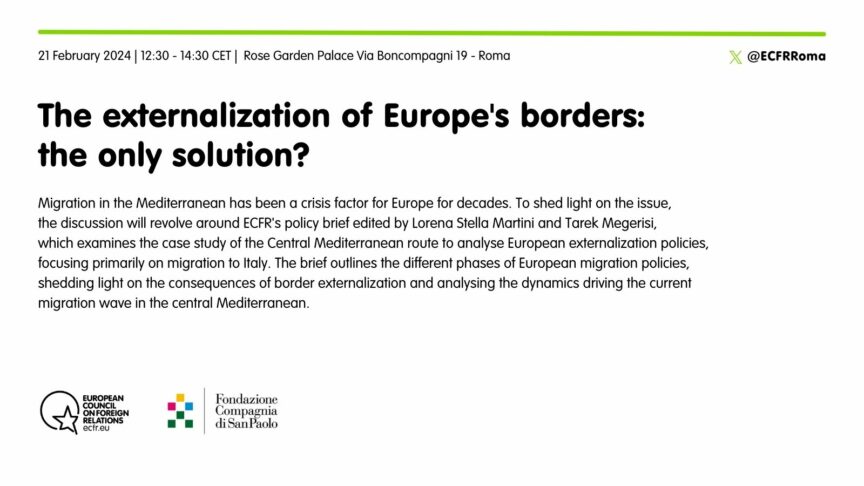
Migration in the Mediterranean has been a crisis factor for Europe for decades. To shed light on the issue, the discussion will revolve around ECFR’s policy brief edited by Lorena Stella Martini and Tarek Megerisi, which examines the case study of the Central Mediterranean route to analyse European externalization policies, focusing primarily on migration to Italy
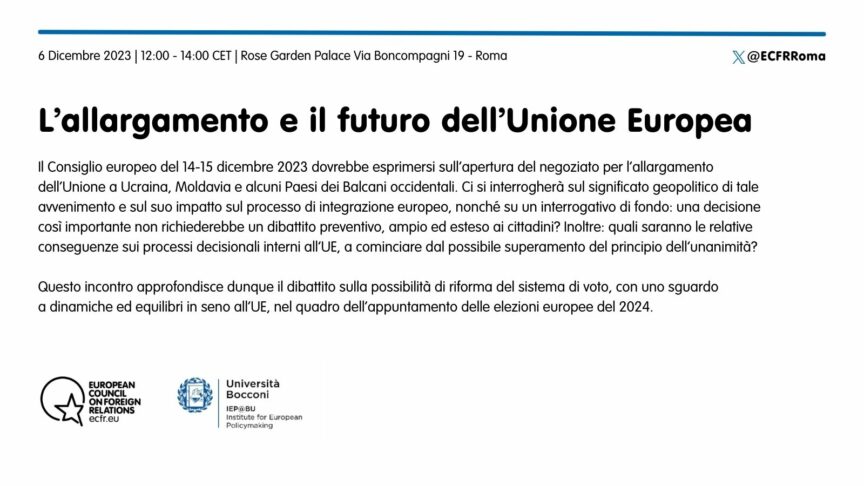
Secondo appuntamento di una serie di tre working lunch realizzati congiuntamente da ECFR Roma, SDA Bocconi e l’Institute for European Policymaking @ Bocconi University
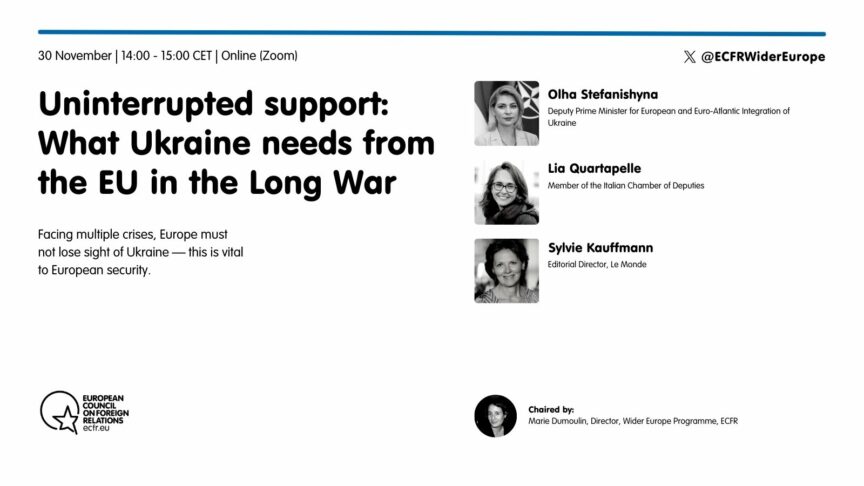
Ahead of the European Council in December where accession talks with Ukraine are expected to be opened, the European Council on Foreign Relations (ECFR) is…
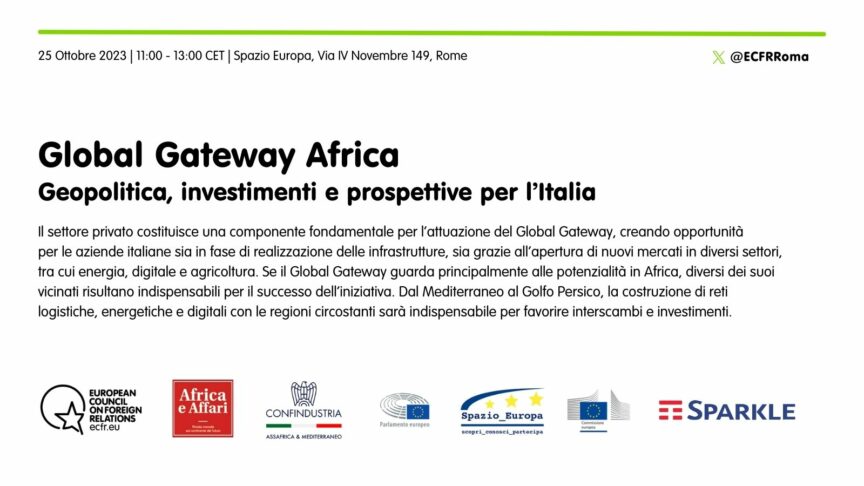
L’evento si concentrerà su come Il settore privato costituisca una componente fondamentale per l’attuazione del Global Gateway e sulle opportunità che questo può rappresentare
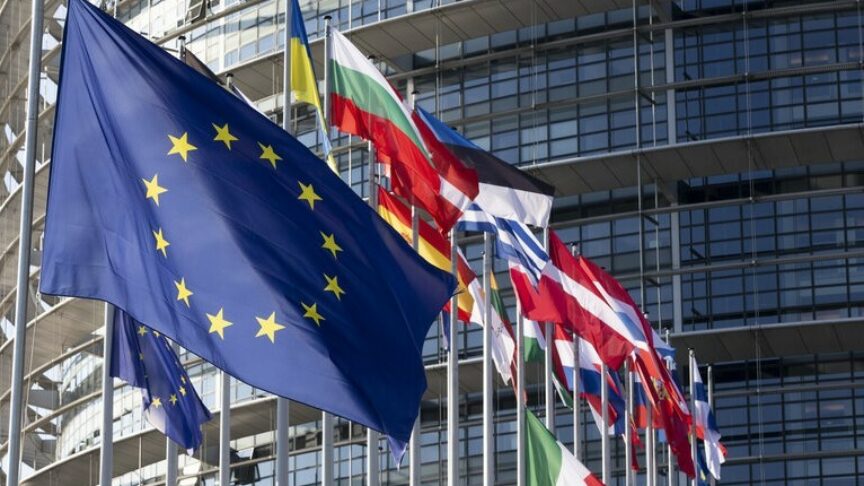
It is time for the EU to burnish its foreign policy credentials by setting out concrete plans for the next round of enlargement
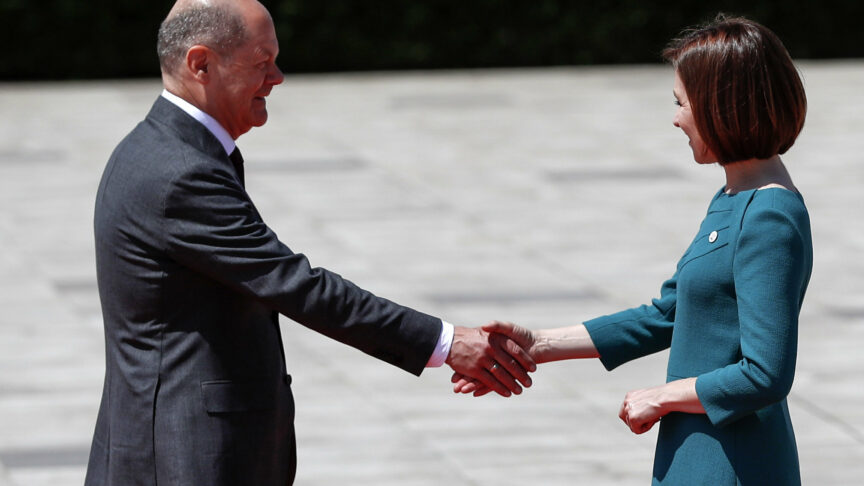
As Europe’s leaders meet in Moldova, the potential of the European Political Community to contribute to security and foster connection across the continent is becoming ever clearer
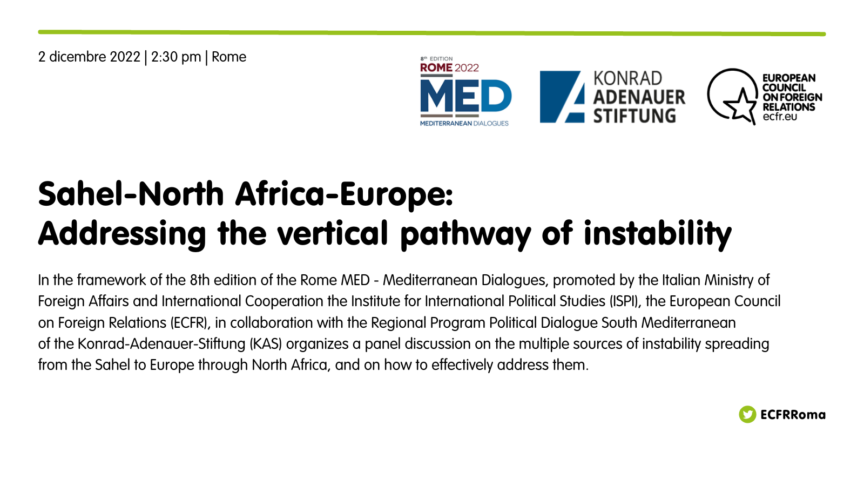
A panel discussion organized in collaboration with the Regional Program Political Dialogue South Mediterranean of the Konrad-Adenauer-Stiftung (KAS) in the framework of the 8th edition of the Rome MED – Mediterranean Dialogues, promoted by the Italian Ministry of Foreign Affairs and International Cooperation the Institute for International Political Studies (ISPI)
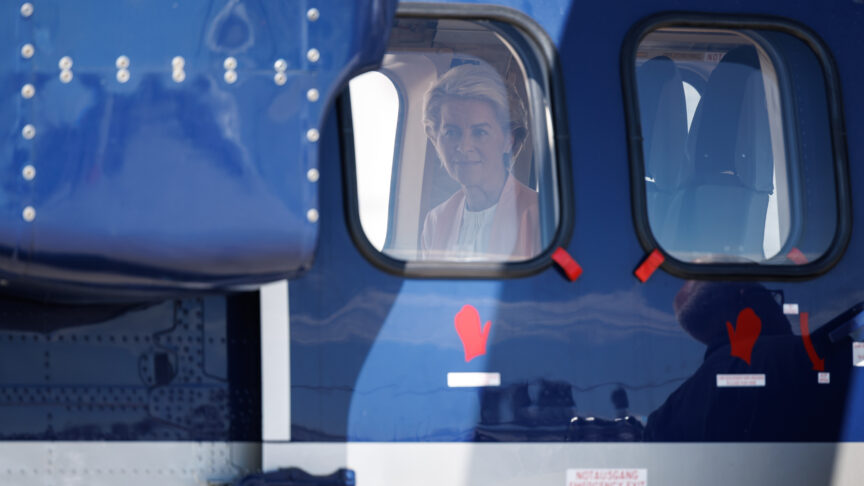
Europeans have set out on a journey towards greater economic sovereignty. They will only reach their destination if they learn to navigate an interconnected world
The EU should do more to promote circular migration as part of their ongoing pursuit of European integration
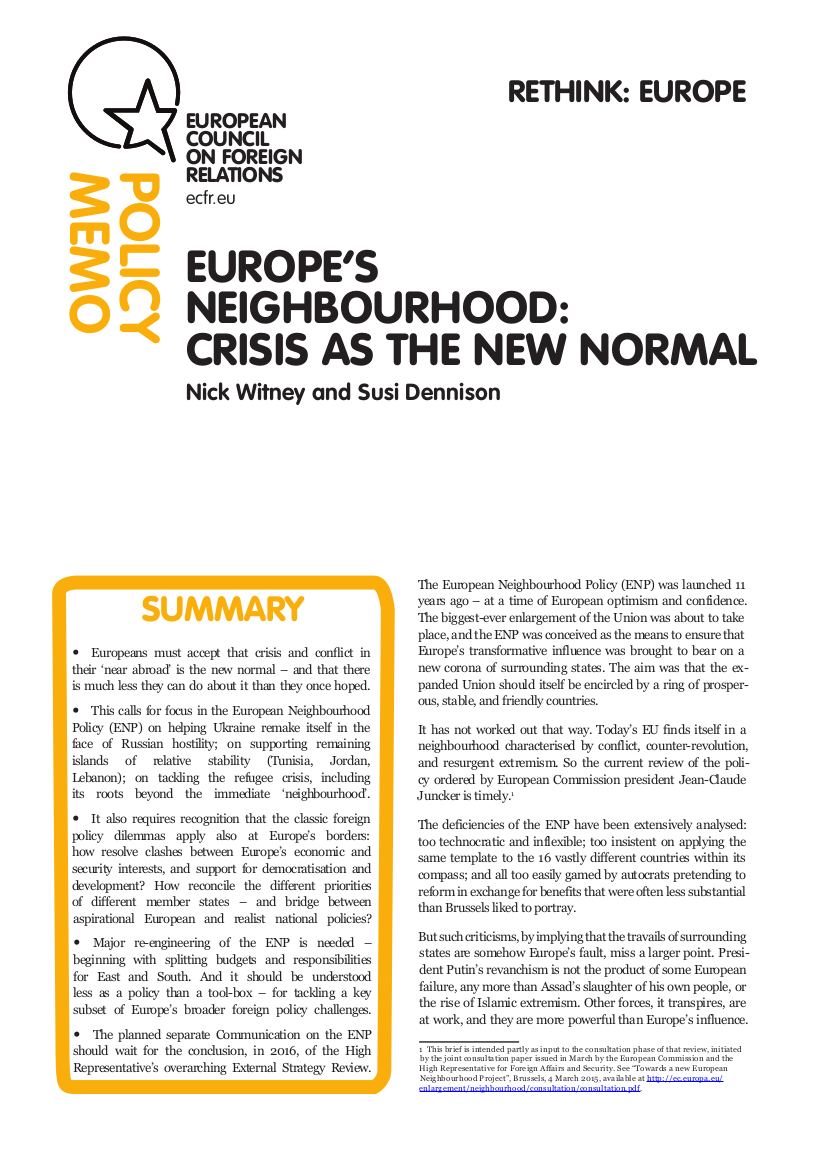
Europe’s European Neighbourhood Policy (ENP) needs drastic reform to deal with a region characterised by conflict, counter-revolution, and extremism

It is time for the EU to burnish its foreign policy credentials by setting out concrete plans for the next round of enlargement

As Europe’s leaders meet in Moldova, the potential of the European Political Community to contribute to security and foster connection across the continent is becoming ever clearer

Europeans have set out on a journey towards greater economic sovereignty. They will only reach their destination if they learn to navigate an interconnected world
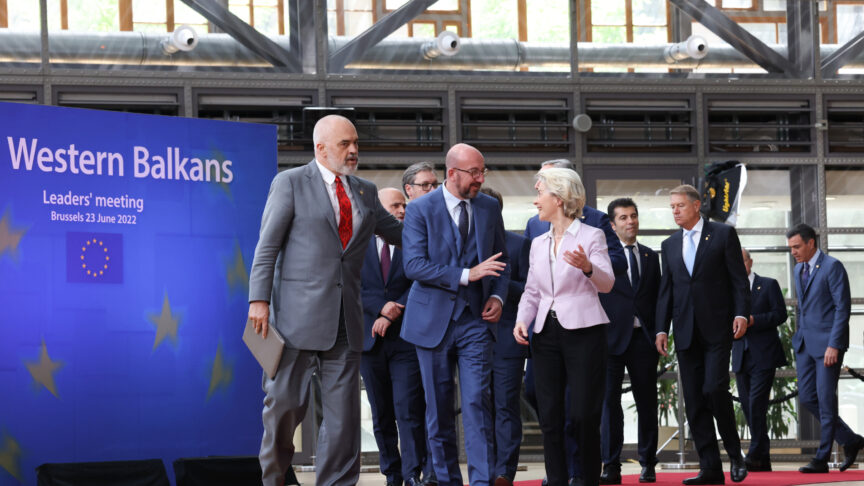
The EU’s enlargement policy will only remain effective if it judiciously manages its relations with Western Balkans countries
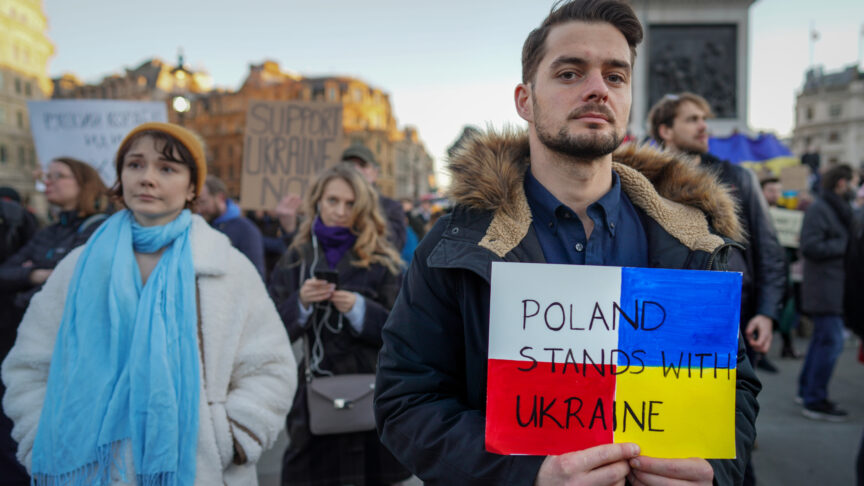
Warsaw is in a uniquely strong position to launch an ambitious initiative for the EU’s eastern neighbourhood. To do this, it will need to use its new image in Europe to good effect

The still-incomplete web of allies and institutions that the EU has woven in the Balkans in the last 30 years is not only strong but also valuable to its geopolitical struggle against Russia
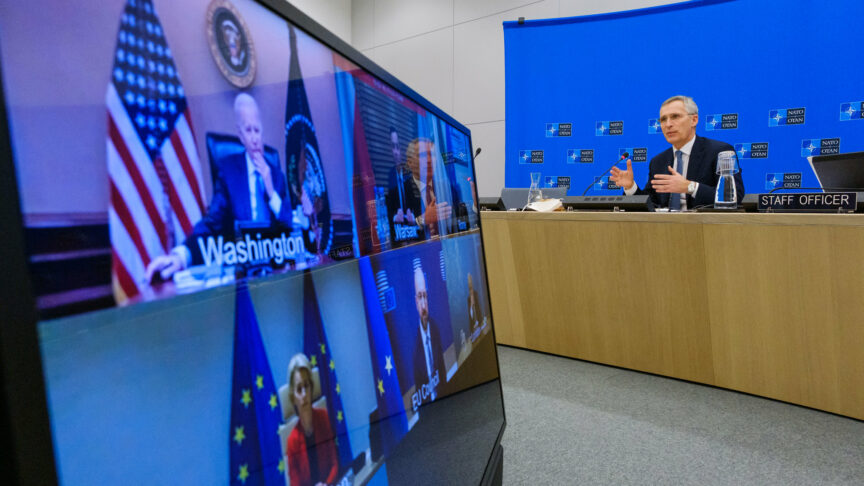
To prevent catastrophic wars, European states should concentrate on stabilising the West’s accomplishments and defending them against the revisionist policies of Russia in Europe and China in Asia
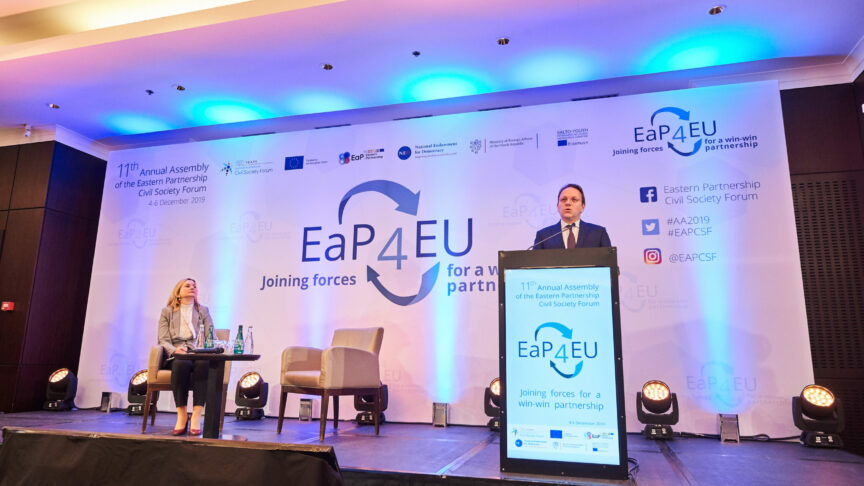
No matter who wins the US election, the EU will need to play a bigger security role in its neighbourhood
ECFR experts share their insight into the manouevres around next month’s US-Poland summit. What does it mean for the JPCOA, and what steps should European countries take in response?
Matteo Salvini has launched the “League of Leagues” – an alliance of nationalist parties across the continent. And he brings friends

As leaders are about to take pivotal decisions for Ukraine’s fate at the NATO summit, join us for a discussion about pathways and policy options for…

Building on the success and results of the 2023 Project “France-Italy-Germany Trilateral Dialogue: in Pursuit of a common agenda”, the 2024 Quadrilateral Project will continue to promote intra-European dialogue between capitals, extending last year’s trilateral format to Spain

Migration in the Mediterranean has been a crisis factor for Europe for decades. To shed light on the issue, the discussion will revolve around ECFR’s policy brief edited by Lorena Stella Martini and Tarek Megerisi, which examines the case study of the Central Mediterranean route to analyse European externalization policies, focusing primarily on migration to Italy

Secondo appuntamento di una serie di tre working lunch realizzati congiuntamente da ECFR Roma, SDA Bocconi e l’Institute for European Policymaking @ Bocconi University

Ahead of the European Council in December where accession talks with Ukraine are expected to be opened, the European Council on Foreign Relations (ECFR) is…

L’evento si concentrerà su come Il settore privato costituisca una componente fondamentale per l’attuazione del Global Gateway e sulle opportunità che questo può rappresentare

A panel discussion organized in collaboration with the Regional Program Political Dialogue South Mediterranean of the Konrad-Adenauer-Stiftung (KAS) in the framework of the 8th edition of the Rome MED – Mediterranean Dialogues, promoted by the Italian Ministry of Foreign Affairs and International Cooperation the Institute for International Political Studies (ISPI)
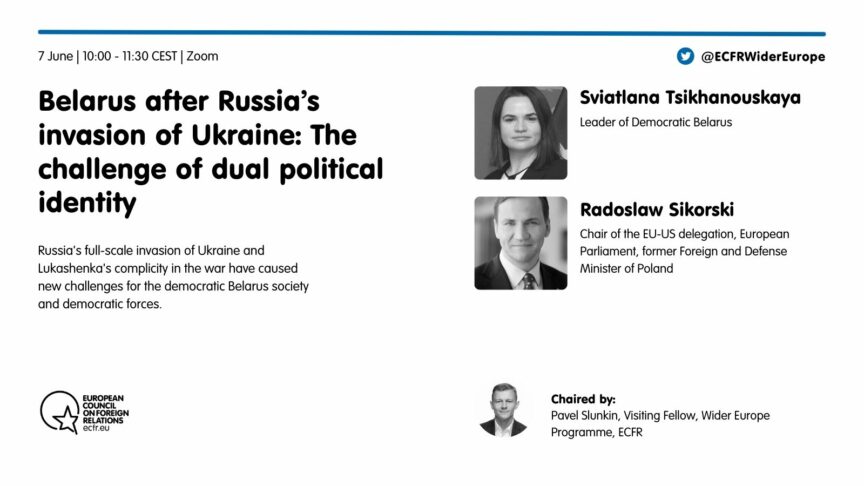
How to effectively separate the Belarusian society from the regime when taking sanctions measures? Will the independence of Belarus survive international isolation left alone with an expansionist Russia?

The EU’s lack of strategic sovereignty in the MENA region need not be permanent
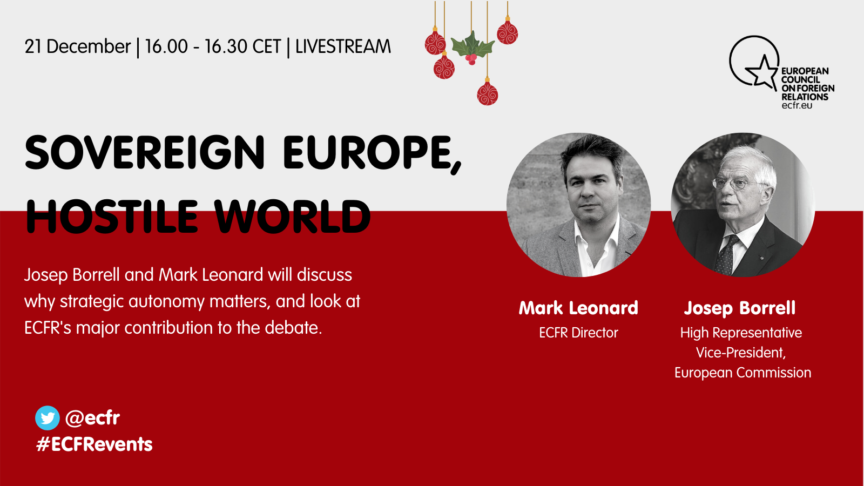
The EU’s High Representative, Josep Borrell, and Mark Leonard discussed why strategic autonomy matters